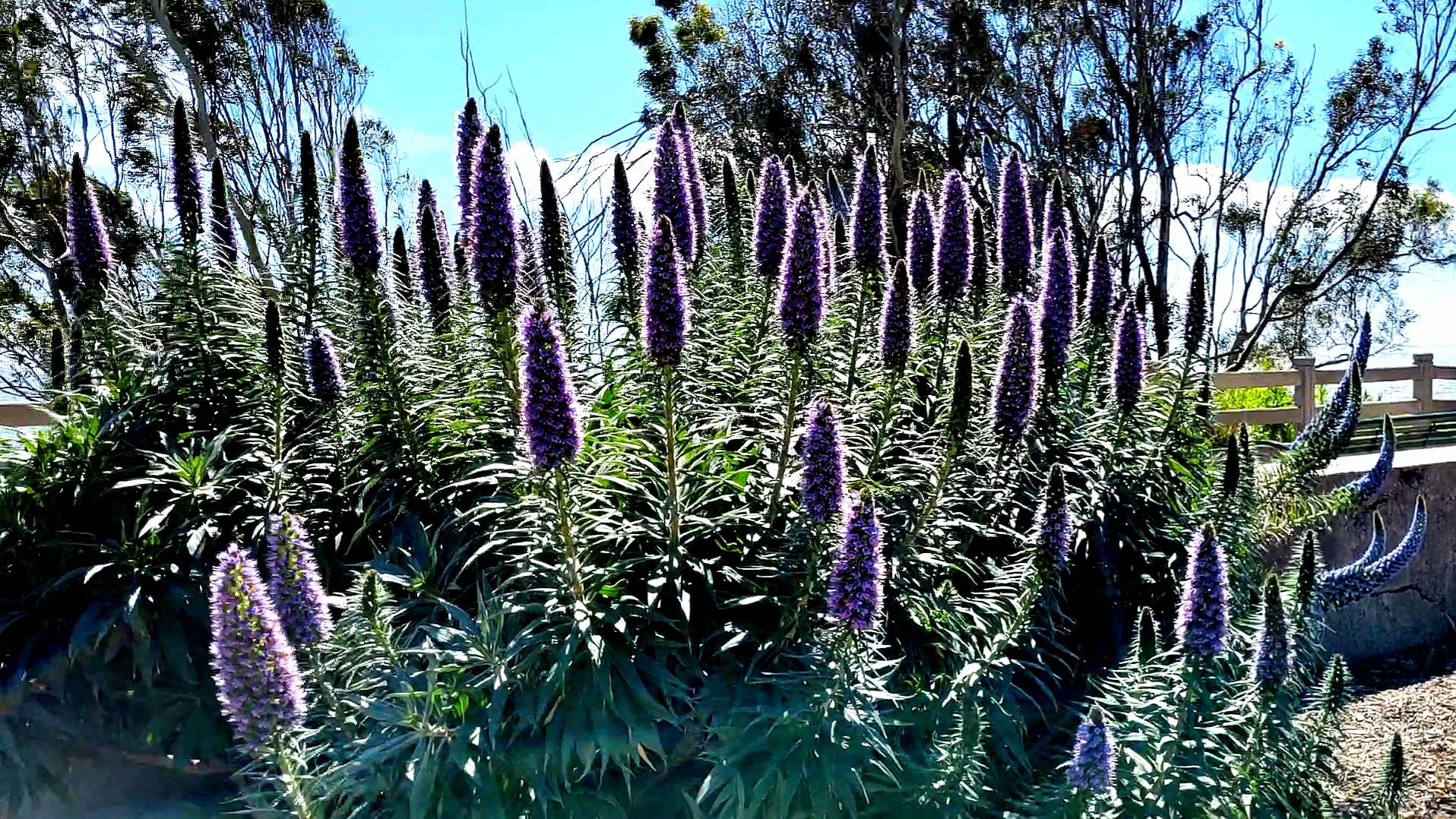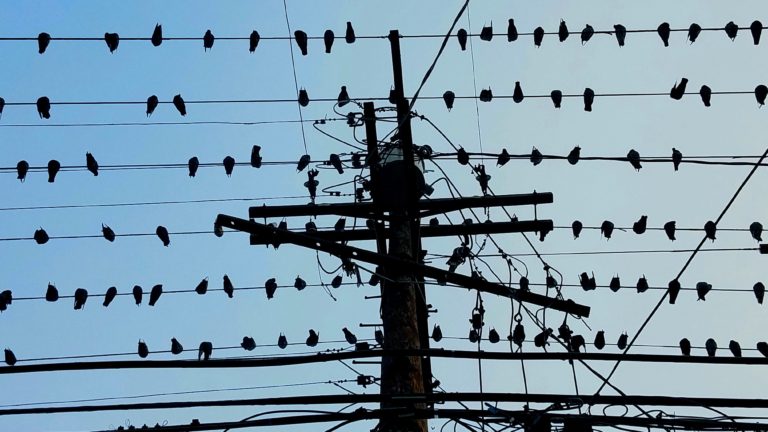Joe McAvoy – Fiction
Church bells rang out the noon Angelus. The ringing is automated now, someone told me. That’s not change. They still...

Saint Patrick’s Day
Danny insisted we keep the doctor/friend thing separate. “It introduces an emotional element,” he said. “Takes me out of my game.” He pointed to the image on the monitor.
“This,” he said, “We’ve never met.”
This.
“I need to stay on my game, Mark,” he said.
I thought of our eighth grade basketball team. His knobby knees. My fingernails were digging into mine.
“Your game, Danny,” I said. “Your game, such as it is, will need to be upped considerably if I’m being pulled off the court.”
It took a few seconds for my eyes to adjust when he flipped on the ceiling light. He was fumbling around for something in the top drawer of his desk, his diplomas centered on the wall behind him, some of his kids’ finger-paintings taped here and there.
“Ah,” he said, holding up a small box. “Here we go.” He pulled out a card, slid it over the polished oak.
Some guys name. PhD. Therapist …
“Get a kickback, Danny?” I said. “A commission?”
He threw me the ‘Danny’s Getting Serious, Fellas’ look.
“Always the wise ass,” he said. “Right to the end.”
I must have jerked.
“Sorry, man,” he said.
No windows in the room. His kelly-green derby hung from a hook on the back of the door. A crucifix on the wall just above the framing.
“Unfinished business,” he said. “Clean up your affairs, etc …”
The smell of citrus in the air.
“Oh, Christ, Danny,” I said. “That’s so fucking cliché.”
He stared at me for a second. Shook his head.
“Guy’s good, Mark.”
Can of wood polish—’Lemon Scented!—’ on the file cabinet in the corner.
“Etc …, Danny? Affairs?”
“Mark. I’m serious.”
“I go out like I came in, Danny,” I said. “Alone.”
“Speaking of clichés?”
“Yeah, well ….”
“Yeah, well, maybe, just maybe, for once in your life, you focus on the time in-between?”
Visions of Diane, asleep, spooned into me. Sweet Stuff, front paws up on the bed, panting and licking my face. Morning sun streaming through the blinds, striping the walls.
Danny’s voice called me back.
“Talk to someone, for Christ’s sake. Anyone. Talk to me.”
“A priest, maybe? Maybe Byrnes, Danny?”
He held up a hand.
“Maybe, Danny, we find Byrnes and…”
His fist hit the desk. The framed photo of a family rafting trip bounced to the floor.
“Don’t,” he said.
I set the frame on the desk. He stared at the cracked glass.
“Fuck,” he said.
“Sorry.”
His nurse peeked in.
“All good, Terry.” Danny smiled up to her. “Sorry.” Terry’s face pulled back. The door clicked shut.
“Where were we?” he asked. “Where … are we? Where are you?”
“I was thinking of Sweet Stuff.”
“Fine. Talk to Sweet Stuff, then,” he said, throwing up his hands. “Whatever.”
We discussed next steps before he walked me to the door. He put his hand on my shoulder, squeezing his fingers deep into the muscle.
“I’ll arrange things,” he said. “Gonna move fast.”
He squeezed harder.
“Ouch, bro.” I said. “Ease up.”
He took the card from my hand and slipped it into my shirt pocket, keeping his hand there like he was heat-gluing it to my chest. My heart thumped into his palm and his eyes filled up.
“Let’s not get all mushy now, Doc. Stay on your game, etc…”
He pushed me into the hallway.
“Jesus, Mark,” he said through the door. “Jesus!”
*
Spring arrived early this year. I walked through town on the way home, the sun warm on the back of my neck, my shadow elongated out front. Mr. Devine was across the street sweeping the sidewalk in front of the pharmacy. He’s bent and small now. “Hire a kid, coach,” I called over. He raised an arm without looking up. The Chieftains blared out from Hickey’s Pub. A banner over the open door read, We’re all Irish Today. Pat stood inside with a mop in his hand, the stools and chairs still turned upside down on the bar and tables around him, setting up for the festivities. He mouthed something and threw me a thumbs-up. The smell of fresh bread and crumb buns from Moritz’s as I neared the train station. Diane once said that I loved them more than I did her. She tried to make it sound like a joke, but I saw her face in the window.
I took a detour through the park on the way to the schoolyard and church. A maintenance crew was raking the baseball diamonds smooth, chalking the lines, mowing the outfield. A pile of river rock was dumped near the gardens along the path. I picked one up about the size of a hardball, polishing it with both hands like I was on my way out to the mound and Diane was leaning against the concession stand behind the backstop. There were metal chains hanging off the rims at the basketball courts. We’d replace them with cotton nets for a better thwop, a more satisfying swish. We put the metal chains back up when we were done.
Nothing really changes.
Church bells rang out the noon Angelus. The ringing is automated now, someone told me. That’s not change. They still clang at their appointed hours. Two ropes used to hang down a long open chute behind a closed door in the sacristy. You could look all the way up the chute and see the clappers dangling in the bowls.
“Don’t let him get you in there,” one of the older boys told me the first time I served Mass with Byrnes.
I don’t pray anymore. That’s changed.
The women from The Altar and Rosary Society were sprucing up the rectory gardens and wrapping the rectory window baskets in green and white crepe bunting. Byrnes room had been on the second floor in the corner overlooking the paved schoolyard and street. He would rip open the curtains after he was done; a dark apparition fastening its collar in a blast of white light. My mother was in the Society back then. She loved to prepare the grounds for the processions before we received the sacraments or on High Holy Days. We dressed in all white with small gold lamé capes tied around our necks. Byrnes would preside while Sister Joan brushed our hair and sorted us into pairs according to height in the school basement before marching us under the rectory windows to the church bearing large wooden crucifixes with polished gold, writhing Jesus’s held high over our heads. I had impetigo at my First Holy Communion, scratching at a scab on my ear before the procession began. Some blood got on my collar. Byrnes slapped me so hard that I fell back and he had to lunge to grab the crucifix before it hit the ground.
Glass shards tinkled down in the sunlight. The rock no longer in my hand. The Society women studied me in silence, the spades and rakes in their gloved hands stilled over bags of potting soil and cardboard flats of spring annuals. I cocked my head to the front door. “Tell them one of the boys said Happy Saint Paddy’s Day.” I heard the rectory door yank open as I walked away. Someone started to scream out something but stopped. I didn’t look back, just lifted my arms to make a cross with my middle fingers.
Cherry trees lining the streets were in early flower, white and pink. Japanese maples budded in the front yards. A lawn mower roared somewhere up the block. I entered the house through the side door at the top of the driveway leading into the kitchen, working my way through the first-floor rooms, pulling up the blinds and sashes, stopping at the picture window in the living room. Mrs. Hennigan was deadheading roses across the street. She seemed surprised to see me and threw a quick smile which I returned with a wave. I played a mix that I made for Diane on our first anniversary. I had to call Gerri for her new number. “Hold on,” she said, after a momentary pause. “Let me get it.” Gerri managed to stay close to both of us after it all fell apart. Everyone else took sides.
Diane didn’t take much with her when she left. Her clothes and books. And Sweet Stuff. She didn’t ask. Said I couldn’t give him what she could. Couldn’t love him as she did. I used to nuzzle into him. Scratch his belly, his paws pointing to the ceiling and his tail wagging back and forth like the metronome once did on top of her piano.
“Hi,” I said, when she answered. “It’s me.” A man’s voice from near her. ‘What’s the matter? Who is it?’ I couldn’t make out her reply.
The last thing she said as she stood at the bottom of the front steps two years ago was, ‘Don’t call for a while, OK?’ Sweet Stuff stood at her side, looking up to me with the leash hanging out of both sides of his mouth, his tail slapping at her leg. Her brother Jack’s pickup idled at the curb with the passenger-side door flung open. Jack leaned across the bench seat toward us from behind the wheel, looking up the brick path that Diane and I laid when we first moved in and that she bordered with azaleas and ornamental grasses. “Come on,” he yelled. “Let’s go.” He turned away when I waved.
“Mark,” she said.
“It’s been a while. I thought maybe this might be OK.”
She lived out of state now. She was in another relationship, Gerri told me.
“I would have preferred some notice,” she said. “But okay.” Every exchange with Diane was a transaction of truth. It frustrated her when I couldn’t respond in kind. “I’m not sure if it’s okay, actually,” she said. “I think it’s okay.”
I kept up the yard and gardens. Anyone looking from the street might think the place joyfully occupied but the work was a chore now where it had once brought me—brought us—great pleasure. We used to place the Bluetooth speaker on a small folding table somewhere nearby and set Pandora to a favorite station. Sweet Stuff kept a lazy watch from the shade under the hydrangeas. By the time we looked up hours later, we were satisfied with our work and with each other, tired and sweaty, the soil caked dry on our hands and knees, driven under our fingernails, and smudged over us where we had wiped something away.
“What do you want?” Diane asked.
Sweet Stuff barked in the background.
“The gardens are blooming, and ‘Not a Drop of Rain’ is playing,” I said. The year before she left, we went to see Robert Earl Keen up at the Zoo Concert Series on a mid-September evening. She sang along with every song. I wrapped my arms around her from behind, resting my chin on her shoulder. It was as if Keen and his band looked out from the stage, over the curving grass terraces that led up to the elephant enclosure at the top and there were only the two of us standing in the middle with our eyes closed, swaying to the music, the elephants quiet and swaying behind. A tear ran down the crease between our cheeks.
“I’m sorry,” I whispered into her ear. She kept singing.
“Are you okay, Mark?”
Mrs. Hennigan waved to the driver as she walked to the curb to meet the mail truck. She sorted through the stack in her hand after it moved on, turning up the path to her front door, throwing everything on the steps before returning to the roses.
“Mark,” Diane said. “Are you okay?”
“How’s Sweet Stuff?” I asked.
“He’s right here,” she said. “Such a good dog.” ‘Yes, such a good boy, aren’t you?’ I heard his excited breaths, the leash jingling. ‘Down,’ she said.
“He’s fine,” she said. “Still has some puppy in him.”
There’s so much of you still here.
I almost said it.
“He’ll always be a puppy,” I said. “To me, anyway.”
The garden tools. The gardenia hedges along the sidewalk; the rhododendrons on each side of the stoop softening the front wall of the house; the roses and lilies and hostas and assorted succulents and groundcovers of forget-me-nots and star-creepers and periwinkles winding through jigsaw-puzzle pieces of lawn. She taught me their names and blooming schedules. Spacing and layering. Complementary colors.
“It’s almost Spring,” I said. “Everything is coming to life.”
The red bandana hanging on the back of the closet door in the bedroom.
A boy practiced wheelies out on the street. He leaned into the chrome sissy bar on the back of his seat till the front wheel lifted and sunlight flashed off the whirling spokes. He punched both fists into the sky when the wheel came back down.
The piano.
“The snapdragons and daylilies,” I said. “The catmint with the candytufts. The rock roses on the hummock.”
I had wanted all lawn.
“They must be all grown in now,” Diane said.
“I wish I could ship them to you.”
‘Keep going,’ I heard her say. ‘I’ll catch up’
After we bought the beach house, we’d walk south to the jetty with Sweet Stuff off the leash. I’d wander into the dunes or surf. “I’m over here,” she called to me once, waving her arms above her head. Sweet Stuff ran back and forth between us until she clipped the leash to his collar and turned to head home. A flock of pelicans flew north in a single file, rising and plunging in soft rolls out beyond the waves, vanishing into the shadows under the Neahkahnie cliffs.
“Still there?” Diane asked.
There might have been a few more years had we intervened earlier, Danny told me. “How did you manage the pain for so long without saying anything?” he asked.
“Still here,” I said.
‘Famous Blue Raincoat’ was playing.
“Why didn’t you take the piano, Diane?”
She laughed.
On Sunday mornings, she would play in the living room while I made breakfast before she went to Mass. The sun fell over her through the skylights. Sometimes she sang as she played. Laura Nyro, Carol King, Joni Mitchell. I added harmonies from the kitchen while I fried up omelets and roasted potatoes with onions and peppers and fresh rosemary from the clay pot on the back deck and squeezed oranges for juice and poured us coffee from the French press.
“I haven’t played in a long time,” she said.
On long drives, one of us hummed a melody and the other tried to guess the song. I almost always won. She said that she liked to see the lines on my face lengthen when I recognized the tune. Once, in early summer, near the end, we drove through the Gorge to hike the trails up to one of the Falls. She reached over and ran a finger back from the corner of my eye.
“You know what they say about men with big crows-feet?” she asked.
The snow-capped summit of Mt. Adams peeked over the hills across the Columbia.
“Do I want to know?”
“The deeper the lines, the emptier the —.” Her head fell against the side window. She pulled at the bandana around her neck, shivering, mumbling something. I couldn’t tell if she were talking to herself or to me.
“Too late now,” I said.
“The soul,” she said. “ The man, it doesn’t matter.” The river surged with the season’s first melt. A tow boat pushed a string of empty barges downstream toward Portland.
Mrs. Hennigan was on her knees, pulling weeds and turning the soil. She stopped for a moment to pull off her sunhat, brushing a sleeved forearm across her brow, staring off to something I couldn’t see.
“Diane?” I said
She didn’t reply.
“Hum a song?”
“Oh, Mark,” she said. “What’s going on?”
She once told me that she knew me better than I knew myself.
“Please,” I said.
The sky was cloudless, deep blue. The sun high. A mix of garden scents wafted in. A woman pushing a stroller with twins stopped on the sidewalk at the end of the brick path. She didn’t see me or didn’t care, snapping off a long stem from the gardenias, bringing the floret down for the children to smell. Their legs kicked up. Soft white and pale-yellow petals surrounded by thick, dark-green leaves. I thought of the boutonnieres pinned to our lapels and blouses as we gathered in the schoolyard for the Saint Patrick’s Day celebrations. The faces of my childhood friends. The shouts and squeals of laughter as we ran about the yard under the rectory windows. The nuns scattered among us, corralling us, counting our heads.
“The piano is yours, Diane,” I said. “Can I ship it to you?”
She was humming.
I couldn’t place the piece.
I would have let the moment go on forever.
She stopped after a few lines.
“You’re listening to new music,” I said.
“I have to go,” she said.
Sweet Stuff was barking. ‘I’m OK. I’m OK,’ she was saying. ‘Down.’
The lawn sprinklers started up. A thin rainbow hung in the spray above the grass.
“Let me think about the piano, Mark,” Diane said. “We can work it through Gerri, OK?”.
“Sure,” I said. “Give Sweet Stuff a kiss for me?”
“Of course,” she said. “The gardens? Text me some photos?”
The woman on the sidewalk pushed her nose into the floret, her shoulders rising as she took in a deep breath. She trimmed off some petals, letting them fall to the ground, fitting what was left above her ear and pushed the stroller out of view.
“I will,” I said.
“Are you sure you’re OK, Mark?”
The window was warm against my forehead. The reflection of the living room behind me in the glass. I pulled the card that Danny gave me from my shirt pocket; my heartbeat counting out precious seconds that I would never recover. I turned to look inside. Dust sparkled in shafts of sunlight falling over the piano, the metronome, the bookshelves, the throw rugs where Sweet Stuff used to sleep while Diane played.
“I’m good, Diane,” I said. “I haven’t felt this good since I don’t know when.”
You can learn more about Joe by clicking on his bio: https://thievingmagpie.org/joe-mcavoy-bio/



